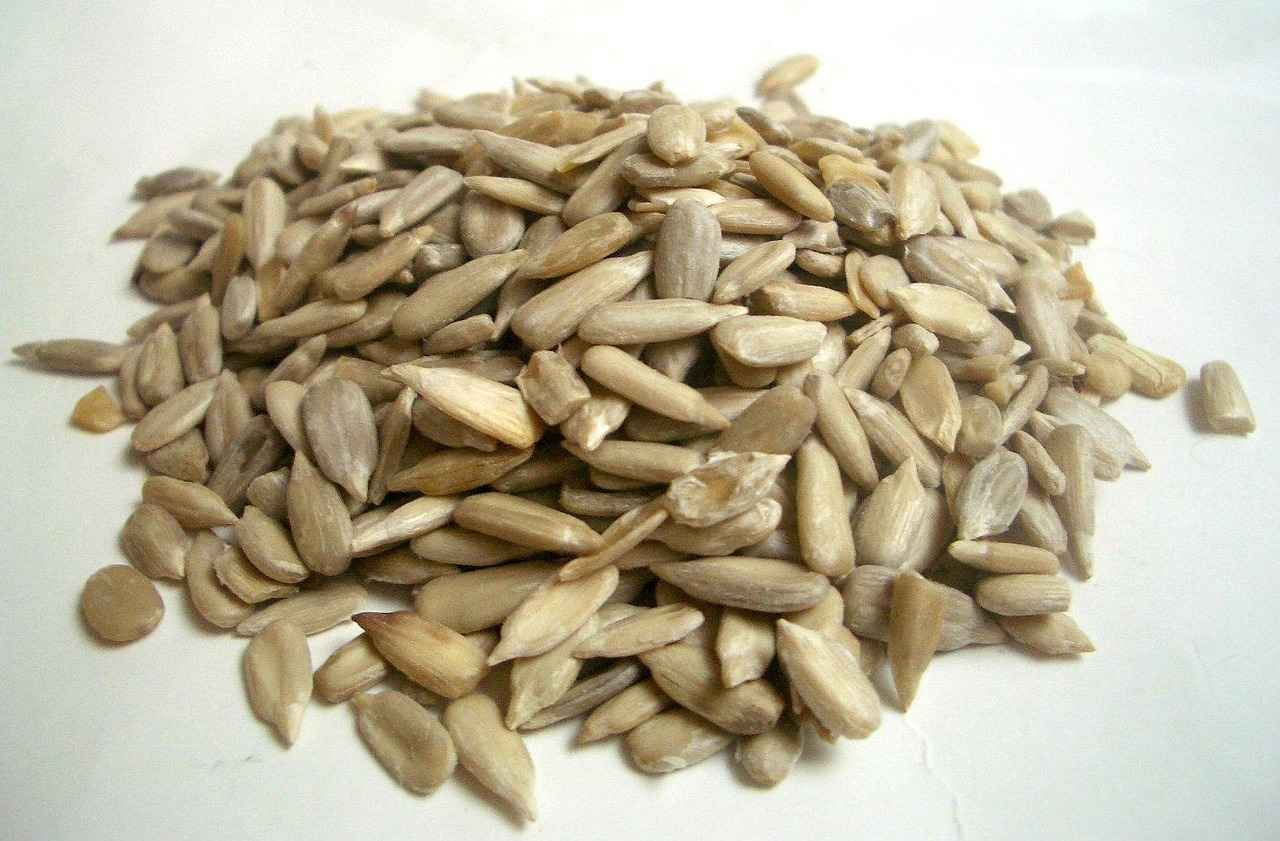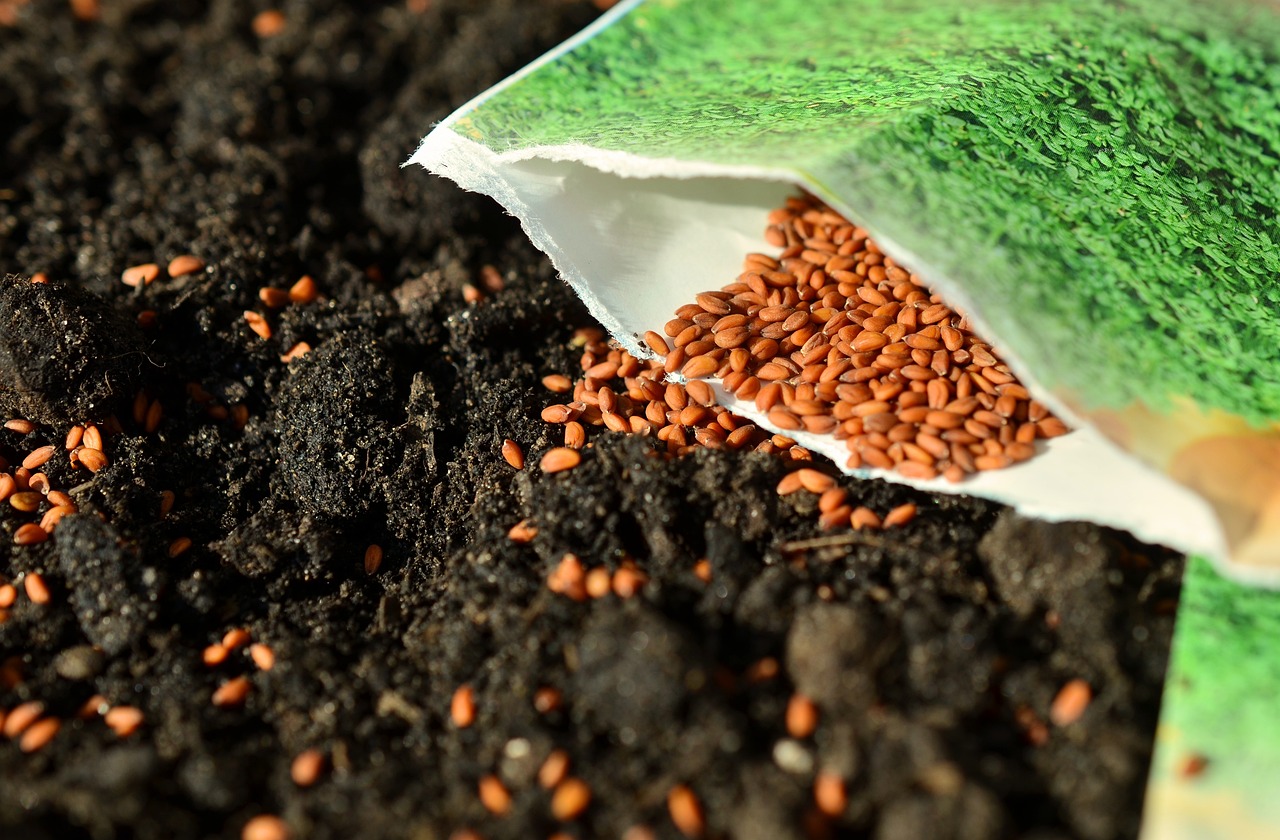This article delves into the health benefits of chia seeds, analyzing scientific research and expert opinions to uncover their nutritional value and potential impact on wellness. Chia seeds have gained popularity in recent years, often touted as a superfood. But what does the science say about their benefits?
What Are Chia Seeds?
Chia seeds are tiny, nutrient-dense seeds derived from the Salvia hispanica plant, native to Mexico and Guatemala. These seeds are celebrated for their remarkable nutritional profile, including high levels of fiber, omega-3 fatty acids, and various essential micronutrients.
What Nutrients Are in Chia Seeds?
Chia seeds are a powerhouse of essential nutrients. A single ounce (28 grams) contains approximately:
- 11 grams of fiber
- 4 grams of protein
- 5 grams of fat, primarily healthy omega-3s
- Calcium, magnesium, and phosphorus
This rich nutrient content makes chia seeds an excellent addition to a balanced diet.
How Do Chia Seeds Benefit Heart Health?
Chia seeds are particularly beneficial for heart health due to their high omega-3 fatty acid content. These healthy fats can help reduce inflammation and lower cholesterol levels, contributing to better cardiovascular health. Studies suggest that incorporating chia seeds into the diet may help lower the risk of heart disease.
Can Chia Seeds Aid in Weight Loss?
Thanks to their high fiber content, chia seeds can promote feelings of fullness, which may lead to reduced calorie intake. Their ability to absorb water and expand in the stomach can help control appetite, making them a valuable ally in weight loss efforts when included in a balanced diet.
Are Chia Seeds Good for Digestive Health?
Chia seeds are an excellent source of soluble fiber, which aids digestion. This fiber absorbs water, forming a gel-like substance that helps regulate bowel movements and promotes gut health. Regular consumption of chia seeds may help alleviate digestive issues such as constipation.
How Do Chia Seeds Impact Blood Sugar Levels?
Due to their high fiber content and low glycemic index, chia seeds may help stabilize blood sugar levels. This characteristic can be particularly beneficial for individuals with diabetes or those looking to manage their blood sugar effectively.
Can Chia Seeds Improve Bone Health?
Rich in calcium, magnesium, and phosphorus, chia seeds can contribute significantly to bone health. These minerals are essential for maintaining strong bones and preventing conditions like osteoporosis, making chia seeds a valuable addition to the diet, especially for those at risk of bone-related issues.
How to Incorporate Chia Seeds into Your Diet?
Chia seeds are incredibly versatile and can be easily incorporated into various dishes. Here are some practical tips:
- Sprinkle them on salads or yogurt
- Add them to smoothies for a nutrient boost
- Use them to make chia pudding by soaking them in milk or a milk alternative
Are There Any Risks or Side Effects of Chia Seeds?
While chia seeds are generally safe for most people, excessive consumption may lead to digestive issues due to their high fiber content. It’s essential to consume them in moderation to enjoy their benefits without adverse effects.
What Do Experts Say About Chia Seeds?
Nutritional experts generally endorse chia seeds as a healthy addition to a balanced diet. They emphasize the importance of variety and moderation in consuming any superfood for optimal health. Including chia seeds as part of a diverse diet can help maximize their benefits.

What Are Chia Seeds?
Chia seeds are tiny, yet incredibly nutrient-dense seeds that come from the Salvia hispanica plant, native to Mexico and Guatemala. These seeds have gained immense popularity as a superfood due to their impressive nutritional profile and numerous health benefits. They are rich in essential nutrients, including fiber, omega-3 fatty acids, and various vitamins and minerals, making them a valuable addition to a healthy diet.
Chia seeds are often celebrated for their high fiber content. In fact, just one ounce (28 grams) of chia seeds contains about 11 grams of fiber, which can help support digestive health and promote feelings of fullness. This makes them an excellent choice for those looking to manage their weight or improve their overall health.
- Omega-3 Fatty Acids: Chia seeds are one of the richest plant-based sources of omega-3 fatty acids, specifically alpha-linolenic acid (ALA). These healthy fats are known to support heart health and reduce inflammation.
- Protein: With around 4 grams of protein per ounce, chia seeds provide a good source of plant-based protein, making them a great option for vegetarians and vegans.
- Minerals: Chia seeds are packed with essential minerals such as calcium, magnesium, and phosphorus, which are crucial for bone health and overall wellness.
- Antioxidants: These tiny seeds are also rich in antioxidants, which help combat oxidative stress and protect the body from free radicals.
The soluble fiber in chia seeds absorbs water and forms a gel-like substance, which can aid in digestion. This gel can help regulate bowel movements, making chia seeds an excellent choice for those who experience digestive issues. Additionally, the fiber content can promote the growth of beneficial gut bacteria, further enhancing digestive health.
Research suggests that the high levels of omega-3 fatty acids in chia seeds can contribute to improved heart health. These fatty acids may help lower cholesterol levels and reduce the risk of heart disease by decreasing inflammation in the body. Incorporating chia seeds into your diet may thus support cardiovascular wellness.
Due to their high fiber content, chia seeds can help promote feelings of fullness and reduce overall calorie intake. When consumed, they expand in the stomach, which may help curb hunger and prevent overeating. This makes them a valuable addition to a weight management plan.
Chia seeds are incredibly versatile and can be easily added to a variety of dishes. Here are some popular ways to include them in your meals:
- Sprinkle them on top of salads for added crunch.
- Blend them into smoothies for a nutrient boost.
- Use them to make chia pudding by soaking them in milk or a milk alternative overnight.
- Add them to baked goods like muffins or bread for extra nutrition.
While chia seeds are generally safe for most people, it’s important to consume them in moderation. Due to their high fiber content, excessive intake may lead to digestive discomfort, such as bloating or gas. It’s advisable to start with a small amount and gradually increase your intake to allow your body to adjust.
Nutritional experts widely endorse chia seeds as a healthy addition to a balanced diet. They emphasize the importance of variety and moderation, suggesting that while chia seeds are beneficial, they should be part of a diverse diet rich in different foods.
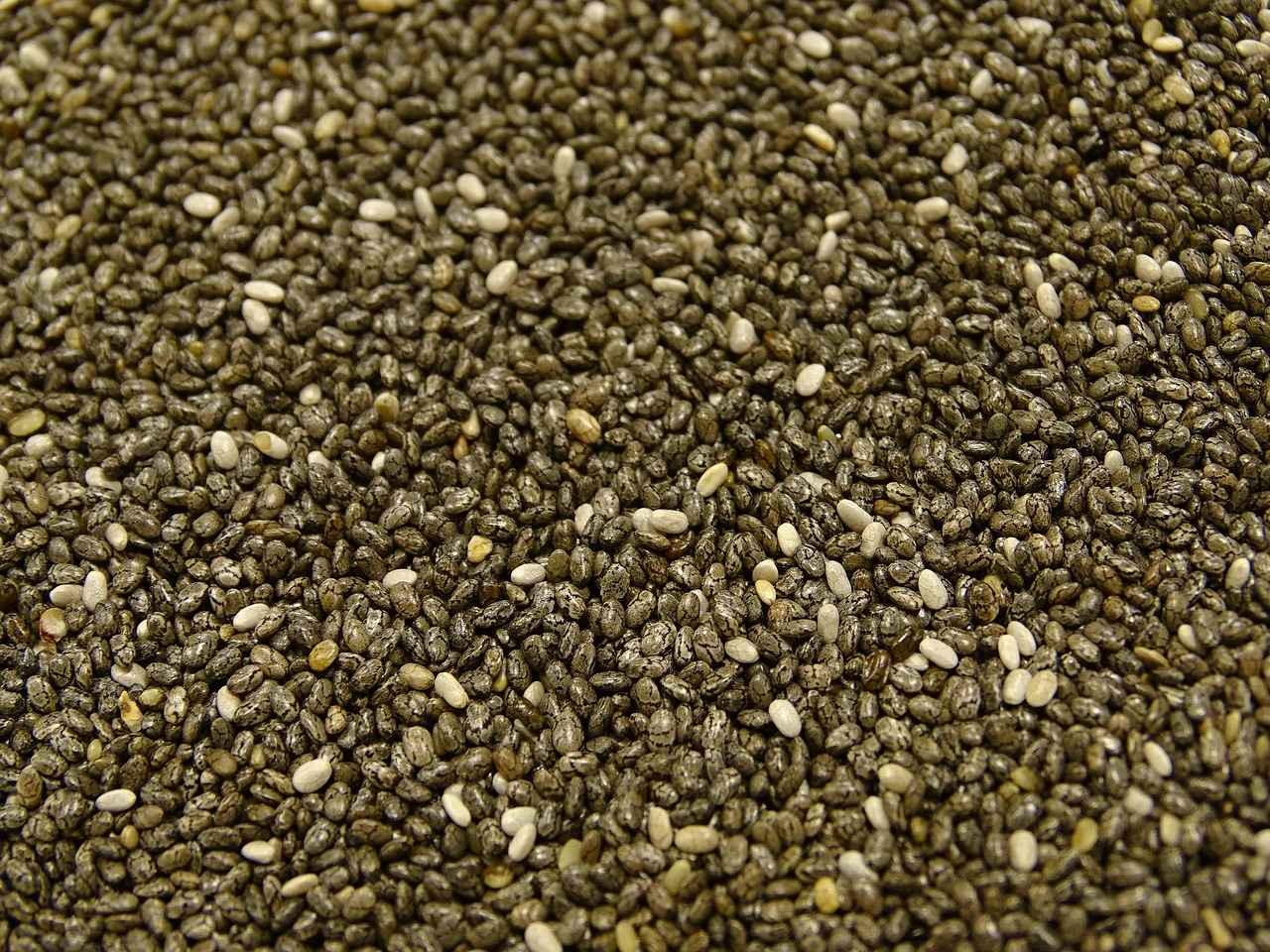
What Nutrients Are in Chia Seeds?
Chia seeds have gained immense popularity as a superfood in recent years, thanks to their remarkable nutritional profile. These tiny seeds, derived from the Salvia hispanica plant, are not just a passing trend; they are a powerhouse of essential nutrients that can significantly enhance your diet.
Chia seeds are packed with essential nutrients, making them a valuable addition to any diet. A single ounce (about 28 grams) of chia seeds contains approximately:
- 11 grams of fiber – This high fiber content helps promote digestive health and can aid in weight management.
- 4 grams of protein – Chia seeds are a great plant-based protein source, making them ideal for vegetarians and vegans.
- 5 grams of healthy fats – These include omega-3 fatty acids, which are known for their heart health benefits.
- Calcium – Essential for bone health, chia seeds provide about 18% of the recommended daily intake per ounce.
- Magnesium – Important for muscle and nerve function, chia seeds offer around 30% of the daily requirement.
- Phosphorus – This mineral plays a crucial role in bone health and energy production.
- Antioxidants – Chia seeds contain various antioxidants that help combat oxidative stress and inflammation.
The impressive nutrient profile of chia seeds makes them a versatile ingredient in many meals. Their ability to absorb water and form a gel-like consistency allows them to be used in smoothies, puddings, and baked goods. This not only enhances the texture of dishes but also increases their nutritional value.
Moreover, chia seeds are low in calories, making them an excellent choice for those looking to maintain or lose weight. The high fiber content promotes a feeling of fullness, which can help reduce overall calorie intake. Incorporating chia seeds into your meals can be an effective strategy for managing hunger and supporting weight loss goals.
In addition to their weight management benefits, chia seeds can also play a role in heart health. The omega-3 fatty acids found in chia seeds are known to help lower cholesterol levels and reduce inflammation, contributing to a healthier cardiovascular system. Regular consumption of these seeds may lead to improved heart health outcomes.
For individuals concerned about blood sugar levels, chia seeds may offer additional benefits. Their high fiber content and low glycemic index can help stabilize blood sugar levels, making them a wise choice for those managing diabetes or looking to prevent blood sugar spikes.
In summary, chia seeds are not just a trendy health food; they are a nutrient-dense powerhouse that can enhance your diet in numerous ways. With their high fiber, protein, and healthy fat content, they contribute to digestive health, weight management, heart health, and blood sugar stabilization. Incorporating chia seeds into your daily meals can be a simple yet effective way to boost your overall nutrition.
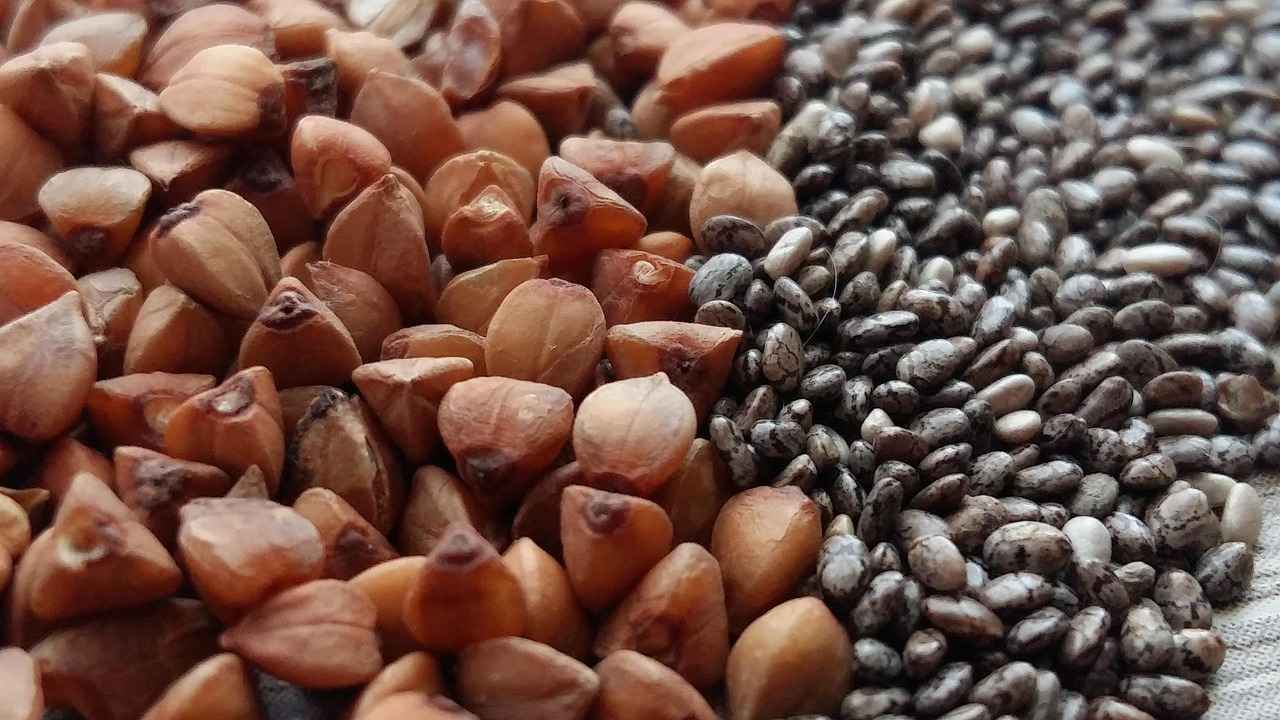
How Do Chia Seeds Benefit Heart Health?
Chia seeds have gained significant popularity due to their numerous health benefits, particularly regarding heart health. These tiny seeds are packed with nutrients that can positively influence cardiovascular function. In this section, we will delve deeper into how chia seeds contribute to a healthier heart and explore the science behind their benefits.
One of the most notable aspects of chia seeds is their high content of omega-3 fatty acids. These essential fats are crucial for maintaining a healthy heart. Omega-3 fatty acids are known to help reduce inflammation throughout the body, which is a critical factor in preventing heart disease. Inflammation can lead to the buildup of plaque in the arteries, increasing the risk of heart attacks and strokes. By incorporating chia seeds into your diet, you can harness the power of these healthy fats to combat inflammation.
Additionally, chia seeds are rich in alpha-linolenic acid (ALA), a type of omega-3 fatty acid that has been shown to lower cholesterol levels. High cholesterol is a significant risk factor for cardiovascular diseases. Studies suggest that ALA can help reduce levels of low-density lipoprotein (LDL) cholesterol, often referred to as “bad” cholesterol. By lowering LDL cholesterol, chia seeds can contribute to better heart health and overall well-being.
Moreover, chia seeds are an excellent source of fiber, with one ounce providing approximately 11 grams. This high fiber content plays a vital role in heart health by helping to regulate blood sugar levels and promoting a feeling of fullness. When blood sugar levels are stable, there is a lower risk of developing insulin resistance, which can lead to type 2 diabetes and, subsequently, cardiovascular issues. Furthermore, the fiber in chia seeds can assist in lowering blood pressure, another crucial factor in maintaining heart health.
Chia seeds also contain several important micronutrients, including calcium, magnesium, and potassium. These minerals are essential for heart health, as they help regulate blood pressure and support proper muscle function, including the heart muscle. A diet rich in these nutrients can help reduce the risk of hypertension, a common precursor to heart disease.
Incorporating chia seeds into your diet is relatively simple. They can be added to smoothies, yogurt, salads, or baked goods, making them a versatile addition to any meal. When soaked in liquid, chia seeds expand and form a gel-like consistency, which can also be used to create healthy puddings or as a thickening agent in recipes.
While chia seeds offer numerous heart health benefits, it’s essential to consume them in moderation. Overconsumption may lead to digestive discomfort due to their high fiber content. A typical serving size is about one ounce (approximately two tablespoons), which is sufficient to reap their health benefits without adverse effects.
In summary, chia seeds can be a valuable component of a heart-healthy diet. Their high levels of omega-3 fatty acids, fiber, and essential minerals contribute to reduced inflammation, lower cholesterol levels, and improved overall cardiovascular health. By incorporating chia seeds into your meals, you can take a proactive step towards maintaining a healthy heart.
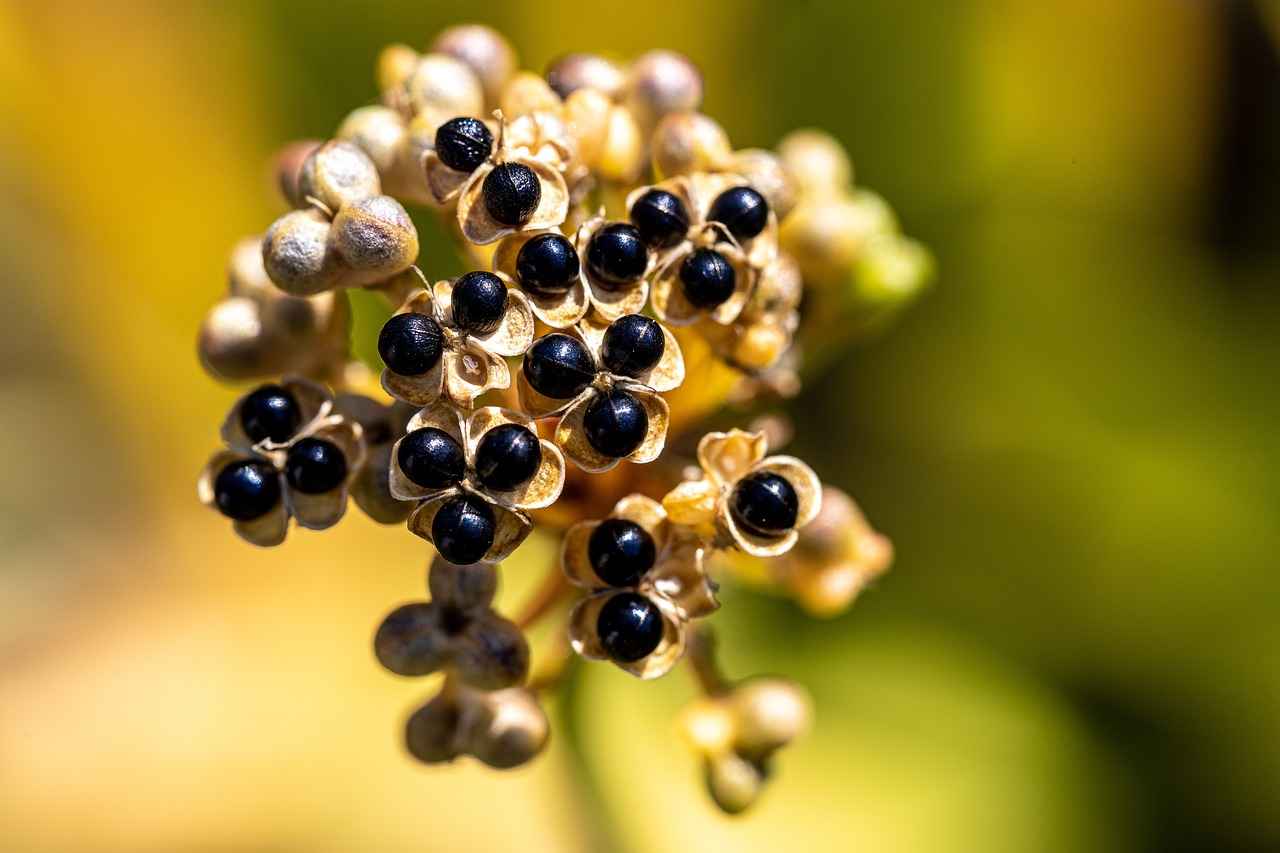
Can Chia Seeds Aid in Weight Loss?
Chia seeds have gained popularity as a superfood and are often touted for their potential benefits in weight management. One of the primary reasons for this is their impressive fiber content. With approximately 11 grams of fiber per ounce, chia seeds can significantly contribute to a feeling of fullness, which is crucial for anyone looking to manage their weight.
When consumed, chia seeds absorb water and expand in the stomach, forming a gel-like consistency. This process can help to increase satiety, making individuals feel fuller for longer periods. As a result, this may lead to a reduction in overall calorie intake, which is a fundamental aspect of any successful weight loss strategy.
Moreover, the high fiber content in chia seeds aids in digestion. By promoting healthy bowel movements, chia seeds can help prevent constipation and support gut health. A well-functioning digestive system is essential for effective weight management, as it allows the body to efficiently process nutrients and eliminate waste.
In addition to fiber, chia seeds are rich in omega-3 fatty acids, which may also play a role in weight loss. These healthy fats can help reduce inflammation and may improve metabolic rates. A higher metabolic rate means that the body burns calories more efficiently, which can further assist in weight management.
Chia seeds are also low in calories and have a low glycemic index, making them an excellent choice for those looking to lose weight. Foods with a low glycemic index do not cause rapid spikes in blood sugar levels, which can lead to cravings and overeating. By incorporating chia seeds into a balanced diet, individuals can stabilize their blood sugar levels, thereby reducing the likelihood of uncontrolled snacking.
Incorporating chia seeds into your meals is quite simple. They can be added to smoothies, yogurt, or oatmeal, and can even be used as a thickening agent in soups and sauces. Additionally, chia seeds can be transformed into a delicious chia pudding when soaked in milk or a milk alternative, making for a nutritious snack that supports weight loss.
However, it is important to consume chia seeds in moderation, as excessive intake can lead to digestive discomfort due to their high fiber content. Starting with a small amount and gradually increasing the intake can help the body adjust.
In conclusion, while chia seeds alone are not a magic solution for weight loss, their high fiber content, ability to promote satiety, and contribution to digestive health make them a valuable addition to a balanced diet. When combined with regular physical activity and other healthy eating habits, chia seeds can support weight management goals effectively.
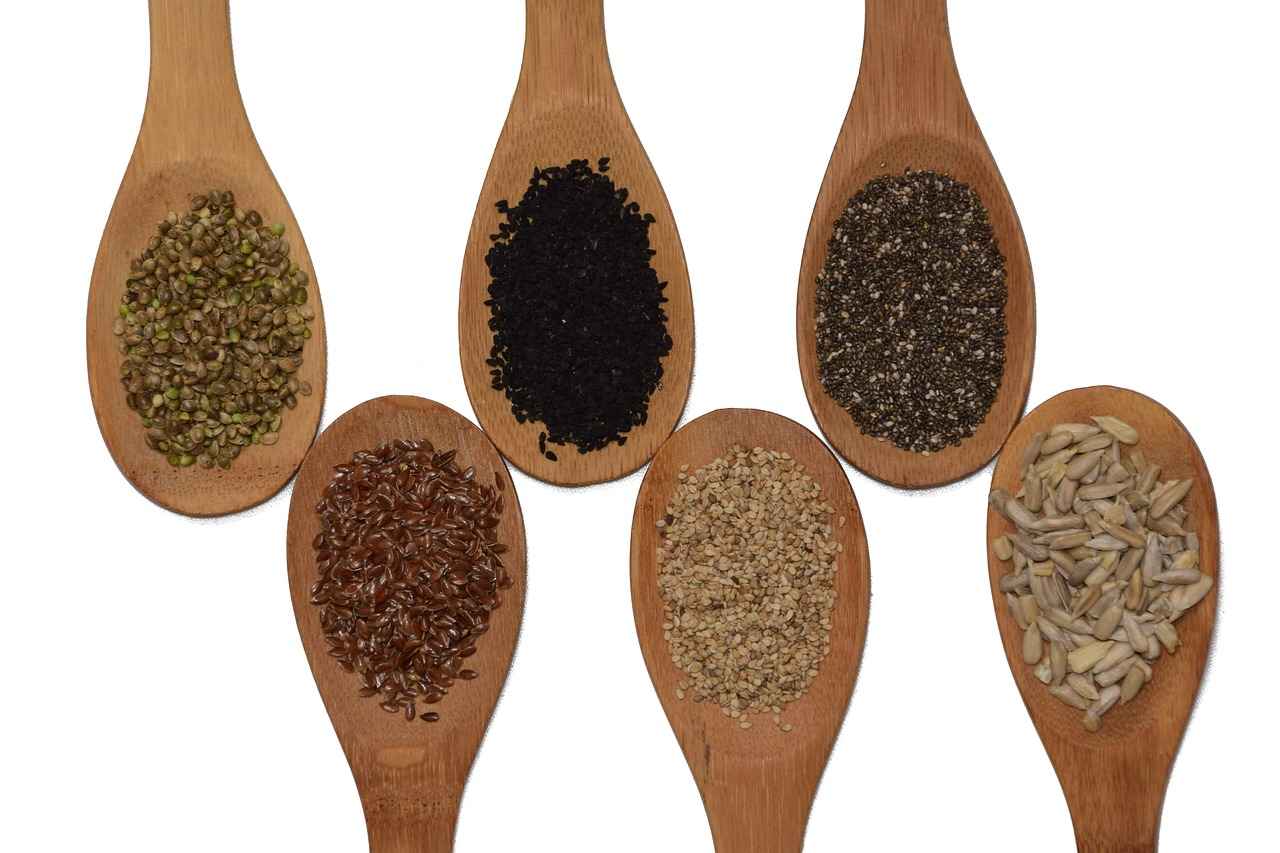
Are Chia Seeds Good for Digestive Health?
Chia seeds, often hailed as a superfood, have gained significant attention for their numerous health benefits. Among these, their impact on digestive health stands out. But what makes these tiny seeds so beneficial for our digestive system? Let’s delve deeper into the science behind chia seeds and their role in promoting gut health.
Chia seeds are an excellent source of soluble fiber, which plays a crucial role in digestion. This type of fiber absorbs water and expands in the digestive tract, forming a gel-like substance. This gel not only helps regulate bowel movements but also aids in maintaining a healthy gut environment. By keeping the digestive system well-hydrated, chia seeds can help prevent issues such as constipation and promote regularity.
In addition to their fiber content, chia seeds are rich in omega-3 fatty acids, which have anti-inflammatory properties. Chronic inflammation in the gut can lead to various digestive disorders. By incorporating chia seeds into your diet, you may help reduce inflammation and support overall gut health.
- Regulates Bowel Movements: The soluble fiber in chia seeds absorbs water, creating a bulkier stool. This aids in smoother and more regular bowel movements.
- Promotes Healthy Gut Bacteria: The fiber acts as a prebiotic, feeding the beneficial bacteria in the gut, which is essential for a balanced microbiome.
- Reduces Risk of Digestive Disorders: Regular consumption of chia seeds may lower the risk of developing digestive issues, such as irritable bowel syndrome (IBS) and diverticulitis.
Moreover, chia seeds have a low glycemic index, which means they do not cause rapid spikes in blood sugar levels. This characteristic is particularly beneficial for those with diabetes or those looking to maintain steady energy levels throughout the day. Stable blood sugar levels can also contribute to a healthier digestive system, as fluctuating sugar levels can lead to digestive discomfort.
To incorporate chia seeds into your diet, consider adding them to smoothies, oatmeal, or yogurt. You can also create chia pudding by soaking the seeds in almond milk or any other liquid of your choice. This not only enhances the nutritional value of your meals but also makes for a delicious and satisfying snack.
While chia seeds are generally safe for most individuals, it’s essential to consume them in moderation. Due to their high fiber content, excessive intake can lead to digestive issues such as bloating or gas. It’s advisable to gradually increase your chia seed consumption and ensure you are drinking plenty of water to help the fiber do its job effectively.
In summary, chia seeds are indeed a powerhouse for digestive health. Their high soluble fiber content, combined with their omega-3 fatty acids, can help regulate bowel movements, promote a healthy gut microbiome, and reduce inflammation. By incorporating chia seeds into your diet, you can enjoy not only their digestive benefits but also their overall contribution to your wellness.

How Do Chia Seeds Impact Blood Sugar Levels?
Chia seeds have garnered significant attention in the health community, particularly for their potential benefits in managing blood sugar levels. These tiny seeds are not only packed with nutrients but also possess properties that may aid individuals seeking to stabilize their blood sugar. In this section, we will explore how chia seeds impact blood sugar levels, focusing on their high fiber content and low glycemic index.
Chia seeds are renowned for their high fiber content, which plays a crucial role in regulating blood sugar levels. A single ounce of chia seeds contains about 11 grams of fiber. This soluble fiber absorbs water and forms a gel-like substance when mixed with liquids. This gel slows down the digestion and absorption of carbohydrates, leading to a more gradual release of glucose into the bloodstream. Consequently, this helps prevent the spikes and crashes in blood sugar that can be detrimental, especially for individuals with diabetes.
The glycemic index (GI) measures how quickly foods raise blood sugar levels. Foods with a low glycemic index are generally better for blood sugar management. Chia seeds have a low GI, which means they have a minimal impact on blood sugar levels. This characteristic makes them an excellent choice for those looking to manage their glucose levels effectively.
- Individuals with Diabetes: For people with diabetes, incorporating chia seeds into their diet can help maintain more stable blood sugar levels.
- Those with Insulin Resistance: Chia seeds may also benefit individuals who are insulin resistant, as they can help improve insulin sensitivity.
- Health-Conscious Individuals: Anyone looking to maintain balanced blood sugar levels for overall health can find chia seeds beneficial.
Incorporating chia seeds into your daily diet is simple and versatile. Here are some practical ways to enjoy them:
- Chia Pudding: Mix chia seeds with your choice of milk or yogurt and let it sit overnight for a nutritious breakfast or snack.
- Smoothies: Add a tablespoon of chia seeds to your favorite smoothie for an extra fiber boost.
- Salads: Sprinkle chia seeds on salads for added crunch and nutritional benefits.
- Baking: Incorporate chia seeds into baking recipes, such as muffins or bread, to enhance their nutritional profile.
Research has shown that chia seeds can positively affect blood sugar levels. A study published in the journal Nutrition Research found that participants who consumed chia seeds experienced improved blood glucose levels compared to those who did not. This evidence supports the idea that chia seeds may be a beneficial addition to the diet for those managing blood sugar levels.
While chia seeds are generally safe for most people, it is essential to consume them in moderation. Due to their high fiber content, excessive intake can lead to digestive discomfort. It is advisable to start with a small amount and gradually increase your intake while ensuring adequate hydration.
In summary, chia seeds are a nutrient-dense food that can play a significant role in stabilizing blood sugar levels due to their high fiber content and low glycemic index. By incorporating these seeds into your diet, you may support your overall health and well-being, particularly if you are managing diabetes or looking to maintain balanced blood sugar levels.

Can Chia Seeds Improve Bone Health?
Chia seeds, often hailed as a superfood, are not only rich in essential nutrients but also offer remarkable benefits for bone health. These tiny seeds, derived from the Salvia hispanica plant, are packed with vital minerals that play a crucial role in maintaining strong bones.
Chia seeds are particularly rich in calcium, magnesium, and phosphorus, all of which are essential for bone integrity. Calcium is widely recognized for its role in bone formation and strength, while magnesium helps with the absorption of calcium and contributes to bone mineralization. Phosphorus, on the other hand, works in tandem with calcium to form strong bones and teeth.
One ounce of chia seeds contains approximately 18% of the recommended daily intake of calcium. This makes them an excellent plant-based source for individuals who may not consume dairy products. Adequate calcium intake is crucial in preventing conditions such as osteoporosis, a disease characterized by weak and brittle bones.
Magnesium is another mineral found abundantly in chia seeds, with one ounce providing about 30% of the daily recommended intake. This mineral is pivotal for bone health as it helps regulate calcium levels and supports the structural development of bones. Studies have shown that magnesium deficiency can lead to lower bone density and increased risk of fractures.
Chia seeds also contain a notable amount of phosphorus, contributing to about 27% of the daily recommended intake per ounce. Phosphorus is vital for bone health as it aids in the formation of bones and teeth. It also plays a role in energy production and the maintenance of cellular function, further supporting overall health.
- Chia Seeds: Rich in calcium, magnesium, and phosphorus.
- Dairy Products: High in calcium but may lack magnesium.
- Leafy Greens: Good sources of calcium but often lower in phosphorus.
- Nuts and Seeds: Provide magnesium but can vary in calcium content.
To reap the bone-strengthening benefits of chia seeds, consider adding them to your daily meals. They can be easily incorporated into smoothies, oatmeal, or yogurt. Additionally, chia seeds can be used as a thickening agent in soups and sauces or even as an egg substitute in baking. Their versatility makes them a convenient option for enhancing your nutritional intake.
While chia seeds are generally safe for most individuals, it’s important to consume them in moderation. Due to their high fiber content, excessive consumption may lead to digestive discomfort. It’s advisable to start with a small amount and gradually increase your intake to allow your body to adjust.
In summary, chia seeds are a powerhouse of nutrients that can significantly contribute to bone health. Their rich content of calcium, magnesium, and phosphorus makes them an excellent addition to a balanced diet, particularly for those seeking plant-based sources of these essential minerals. By incorporating chia seeds into your meals, you can support your bones and overall health effectively.

How to Incorporate Chia Seeds into Your Diet?
Chia seeds have gained immense popularity over the years, and for good reason. These tiny seeds are not only packed with nutrients but also incredibly versatile, making them easy to incorporate into a variety of dishes. If you’re looking to enhance your diet with this superfood, here are some creative and delicious ways to include chia seeds in your meals.
- Sprinkle on Salads: One of the simplest ways to enjoy chia seeds is by sprinkling them on top of your favorite salads. They add a delightful crunch and a nutritional boost, enhancing both flavor and health benefits.
- Blend into Smoothies: Chia seeds can be easily blended into smoothies. Just add a tablespoon to your smoothie mix for added fiber and omega-3 fatty acids. They will not alter the taste but will enrich your drink with essential nutrients.
- Make Chia Pudding: Chia pudding is a popular and nutritious snack. Combine chia seeds with your choice of milk (dairy or plant-based) and let them sit overnight. In the morning, you can top it with fruits, nuts, or a drizzle of honey for a delicious breakfast or snack.
- Add to Baked Goods: Incorporating chia seeds into baked goods is another fantastic option. You can mix them into muffins, bread, or pancakes for added texture and nutrition. They can also serve as an egg substitute; mix one tablespoon of chia seeds with three tablespoons of water and let it sit until it forms a gel.
- Use as a Thickening Agent: Chia seeds can be used to thicken soups and sauces. Their ability to absorb liquid makes them a great addition for achieving the desired consistency without adding extra calories.
- Top Your Yogurt: For a quick and healthy snack, sprinkle chia seeds over yogurt. This not only enhances the flavor but also provides additional protein and fiber.
Chia seeds are not just versatile; they are also incredibly nutrient-dense. A mere ounce of chia seeds contains approximately 11 grams of fiber, 4 grams of protein, and a wealth of essential fatty acids. This makes them an excellent choice for anyone looking to improve their overall health.
While chia seeds are generally safe for most people, it’s essential to consume them in moderation. Their high fiber content can lead to digestive issues if consumed excessively. It is advisable to start with a small amount and gradually increase your intake as your body adjusts.
To keep your chia seeds fresh, store them in an airtight container in a cool, dry place. They can also be refrigerated to extend their shelf life. Proper storage ensures that you can enjoy their benefits for a longer time.
Incorporating chia seeds into your diet is not only easy but also beneficial for your health. With so many ways to enjoy them, you can easily find a method that suits your taste and lifestyle. From smoothies to salads, the possibilities are endless!

Are There Any Risks or Side Effects of Chia Seeds?
Chia seeds have gained immense popularity as a superfood, thanks to their impressive nutritional profile and numerous health benefits. However, like any food, they come with their own set of considerations. In this section, we will explore the potential risks and side effects associated with chia seeds, emphasizing the importance of moderation and informed consumption.
While chia seeds are generally safe for most individuals, excessive intake can lead to some digestive discomfort. This is primarily due to their high fiber content, which can cause bloating, gas, and even diarrhea if consumed in large quantities. It is crucial to gradually introduce chia seeds into your diet, allowing your digestive system to adjust to the increased fiber intake.
Moderation is key when it comes to chia seeds. The recommended daily intake is about 1 to 2 tablespoons (15 to 30 grams). This amount is sufficient to enjoy the health benefits without overwhelming your digestive system. Consuming more than this can lead to complications, especially for those who are not accustomed to high-fiber diets.
There is a possibility that chia seeds may interact with certain medications, particularly those that affect blood sugar levels or blood pressure. For individuals taking anticoagulants or medications for diabetes, it is advisable to consult with a healthcare professional before incorporating chia seeds into your diet. The seeds can enhance the effects of these medications, leading to potential complications.
While rare, some individuals may experience allergic reactions to chia seeds. Symptoms can include itching, swelling, or gastrointestinal distress. If you suspect an allergy, it is essential to discontinue use and consult a healthcare provider for further evaluation.
When incorporating chia seeds into your meals, it is essential to prepare them properly. Chia seeds can absorb up to 12 times their weight in liquid, forming a gel-like consistency. It is advisable to soak them in water or another liquid for at least 30 minutes before consumption. This not only enhances their digestibility but also helps prevent potential choking hazards, especially for those with swallowing difficulties.
Relying too heavily on chia seeds without a balanced diet can lead to nutrient imbalances. While chia seeds are rich in omega-3 fatty acids, fiber, and protein, they lack certain essential nutrients. A well-rounded diet that includes a variety of foods is crucial for overall health. Therefore, it is important to view chia seeds as a supplement to a balanced diet rather than a sole source of nutrition.
Nutrition experts generally advocate for the inclusion of chia seeds in a healthy diet, highlighting their benefits while cautioning against overconsumption. They emphasize the importance of listening to your body and adjusting your intake based on how you feel. It is also beneficial to consult with a healthcare provider or a registered dietitian, especially if you have pre-existing health conditions.
In summary, while chia seeds offer numerous health benefits, it is essential to consume them in moderation and be aware of potential side effects. By understanding how to incorporate them into your diet safely, you can enjoy their nutritional advantages while minimizing any risks.

What Do Experts Say About Chia Seeds?
When it comes to superfoods, chia seeds have gained significant attention from both health enthusiasts and nutritional experts. These tiny seeds, which are derived from the Salvia hispanica plant, are celebrated for their impressive nutritional profile. However, experts stress that while chia seeds can be a beneficial addition to a balanced diet, it’s crucial to maintain variety and moderation in all dietary choices.
Nutritional experts generally endorse chia seeds as a healthy addition to a balanced diet. Their endorsement is primarily based on the seeds’ rich content of essential nutrients, including omega-3 fatty acids, fiber, and various vitamins and minerals. However, they caution against relying solely on any single food item, no matter how nutrient-dense it may be.
One of the main benefits of chia seeds is their high fiber content. A typical serving contains around 11 grams of fiber, which can aid in digestion and promote a feeling of fullness. This can be particularly beneficial for those looking to manage their weight. However, experts warn that introducing too much fiber too quickly can lead to digestive discomfort. Therefore, it is advisable to gradually increase fiber intake and stay hydrated.
Moreover, chia seeds are rich in omega-3 fatty acids, which are known to support heart health. These healthy fats can help reduce inflammation and lower cholesterol levels, contributing to overall cardiovascular wellness. Experts recommend incorporating chia seeds into a diet rich in other sources of healthy fats, such as fish, nuts, and avocados, to ensure a well-rounded approach to heart health.
Another area where chia seeds shine is in their potential to stabilize blood sugar levels. Due to their low glycemic index and high fiber content, chia seeds can slow down the absorption of sugar into the bloodstream. This can be particularly beneficial for individuals with diabetes or those looking to manage their blood sugar levels. However, experts advise that chia seeds should be part of a comprehensive dietary strategy that includes a variety of foods.
Experts also emphasize the importance of moderation when consuming chia seeds. While they are generally considered safe, excessive intake may lead to digestive issues, such as bloating or gas. It is recommended to limit consumption to about 1-2 tablespoons per day to reap the benefits without adverse effects.
In terms of incorporating chia seeds into your diet, experts suggest various methods. They can be added to smoothies, sprinkled on salads, or used to create delicious chia puddings. This versatility makes them an easy addition to many meals, enhancing both the nutritional value and texture of dishes.
In summary, while chia seeds are a powerhouse of nutrients and can offer numerous health benefits, experts advocate for a balanced approach. They recommend integrating chia seeds into a diverse diet that includes a variety of other foods to ensure optimal health. As with any superfood, the key lies in moderation and variety, allowing you to enjoy the benefits without compromising overall dietary balance.
Frequently Asked Questions
- What are the main health benefits of chia seeds?
Chia seeds are packed with nutrients that can enhance your overall health. They are rich in fiber, which aids digestion, and contain omega-3 fatty acids that support heart health. Additionally, their high antioxidant content can help combat inflammation.
- Can chia seeds help with weight management?
Absolutely! The fiber in chia seeds expands in your stomach, making you feel fuller for longer. This can help curb your appetite and potentially lead to reduced calorie intake, making them a great ally in weight loss efforts.
- How can I include chia seeds in my diet?
Incorporating chia seeds into your meals is super easy! You can sprinkle them on salads, mix them into smoothies, or even make a delicious chia pudding. The possibilities are endless!
- Are there any side effects of eating chia seeds?
While chia seeds are generally safe, consuming them in excessive amounts may lead to digestive issues due to their high fiber content. It’s best to enjoy them in moderation to avoid any discomfort.
- Do experts recommend chia seeds?
Yes, many nutritionists and health experts endorse chia seeds as a beneficial addition to a balanced diet. They highlight the importance of variety and moderation, ensuring you get a wide range of nutrients from different sources.
